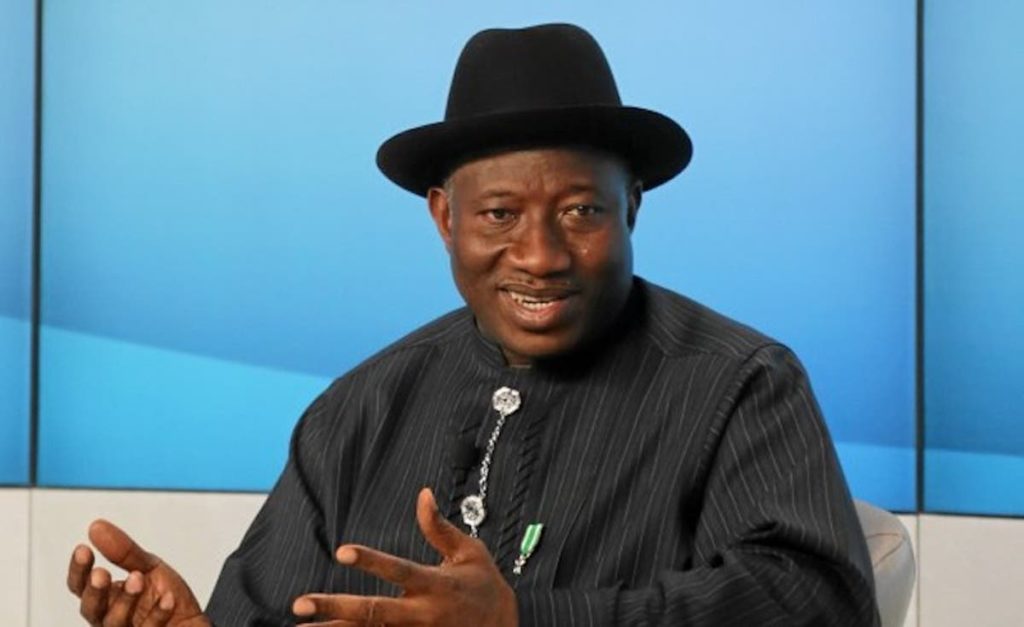Oil proceeds: Buhari’s govt expecting $2.9bn this year but Jonathan’s got $60bn in 2011 – Sanusi
The administration of former President Goodluck Jonathan got $60 billion from oil proceeds in 2011, according to the 14th Emir of Kano, Alhaji Muhammad Sanusi II.

Goodluck Jonathan
The administration of former President Goodluck Jonathan got $60 billion from oil proceeds in 2011, according to the 14th Emir of Kano, Alhaji Muhammad Sanusi II.
Sanusi said this while delivering his paper ‘Improving Sub-nationals Resilience Against Global Economic Stock’ at the 7th edition of Kaduna Economic and Investment Summit (KADInvest 7.0)
He stressed the need to unbundle and disband the Nigerian National Petroleum Company (NNPC) in order to get the country out of economic crisis.
Recall that Governor Nasir El-Rufai of Kaduna state had recently accused the Federal Government of failure in the oil and gas business where he asked the government to ‘get out’ of the sector.
However, aligning with what the governor said, , said the NNPC should be unbundled into different companies for effective and efficient management of the country’s oil sector.
“NNPC is a money pit instead of a cash cow; it should be unbundled and disbanded. More can be had from simply levying royalties and CIT on private players following models like that of Petronas and Petrobras.”
“Beyond the challenging global context, Nigeria has problems entirely of its own making where oil revenues which were once the lifeblood of the Federal Government, have been in secular decline for over a decade. This has been happening regardless of the oil price environment.”
He lamented that the Federal Government is set to collect just 2.9 billion US dollars in oil proceeds this year, compared with nearly 60 billion US dollars in 2011, saying, “This is one of the biggest oversights in public financial management anywhere in emerging markets.
“In some ways, Nigeria’s problems are not a failure of the system because it is working as one would expect, but a failure of design and a failure of implementation. In the current environment, the first and most obvious problem is the existence of the fuel subsidy and opportunities this creates for fraud, the average daily fuel consumption in Nigeria (by the NNPC’s admission) is 66 million litres per day, and on some days as high as 100 million litres per day. This is roughly equivalent to where Indonesia (2019), a country with nearly three times Nigeria’s GDP per capita, two times the number of vehicles and 2.5 times the size of the road network.
“A different way to benchmark Nigeria’s consumption is to look at PMS consumed by each vehicle on a daily basis, on this metric, Nigeria even outranks Iran, a country with three to four times its level of wealth and a road network that is three times the size on a per capita basis and this is not just the impact of subsidies because in Iran official fuel price are 5 US cents per litre, less than 15% of the pump price in Nigeria.”
He attributed the ‘relentless rise’ in the US dollar as being the bigger problem in most of Africa, causing widespread and painful currency adjustment, which is a more important driver of inflation than the underlying moves in commodity prices.
“Since the start of the Ukraine war, crude oil prices are 5% lower, rice prices are 12% higher, and wheat prices are flat, the trade-weighted US dollar however is 17% stronger in this period, the sharpest upward move since the early 1980s, this is what is causing the pain in emerging markets.”
He said only 50% of states generated enough recurrent revenue to cover wages, overheads and debt service and recommended that states advocate for changes that do not rely on fixing failures of system design and policy implementation at the Federal level.
